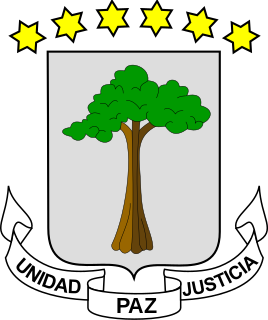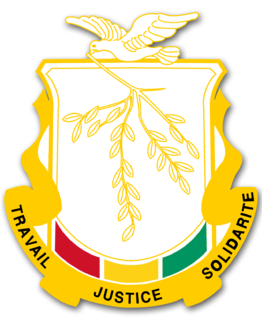
The Prime Minister of Myanmar was the head of government of Myanmar from 1948 to 2011.
Miguel dos Anjos da Cunha Lisboa Trovoada was Prime Minister (1975–1979) and President (1991–2001) of São Tomé and Príncipe. On 16 July 2014, he was appointed the Special Representative of the United Nations Secretary-General and Head of the United Nations Integrated Peacebuilding Office in Guinea-Bissau (UNIOGBIS). Prior to this, he was the Executive Secretary of the Gulf of Guinea Commission.
This name uses Portuguese naming customs: the first or maternal family name is Djaló and the second or paternal family name is Nandigna.

Vice President of Equatorial Guinea is the second highest political position obtainable in Equatorial Guinea. Following the 2011 constitutional reform, there is a provision for two Vice Presidents who are appointed by the President of Equatorial Guinea.

The 1980 Guinea-Bissau coup d'état was the bloodless military coup that took place in Guinea-Bissau on 14 November 1980, led by Prime Minister General João Bernardo Vieira. It led to the deposition of President Luís Cabral, who held the office since 1973, while the country's War of Independence was still ongoing. Furthermore, it resulted in the abandonment of the proposed unification of Guinea-Bissau with Cape Verde, a fellow Lusophone West African country. The Cape Verdean branch of the PAIGC party broke away and formed the new PAICV party in January 1981 under the leadership of Aristides Pereira, President of Cape Verde and former Secretary-General of the PAIGC.
This page is based on this
Wikipedia article Text is available under the
CC BY-SA 4.0 license; additional terms may apply.
Images, videos and audio are available under their respective licenses.
















